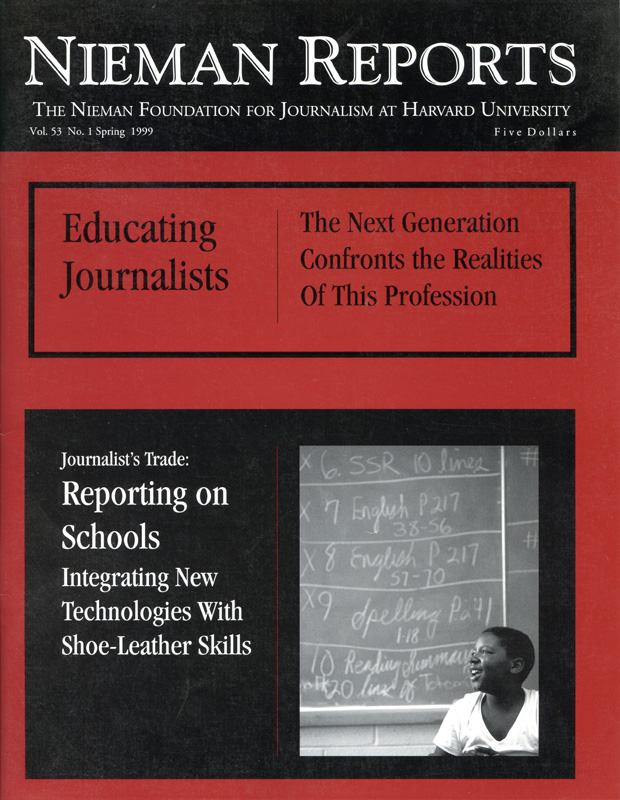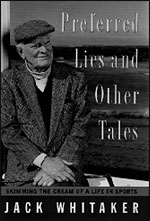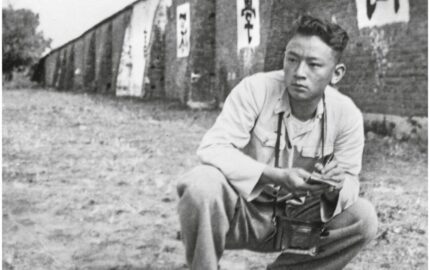There is a movie scene that haunts just about every serious sportswriter I know. In “North Dallas Forty,” actor Mac Davis, who portrays a grizzled veteran quarterback, explains to wide receiver Nick Nolte why breaking an arm during a professional football game actually felt good.
“It made me feel like I was doing something important,” Davis says, with chilling effect.
It is the sportswriter’s curse to know that same feeling.
How could something so unimportant in the whole scheme of things in life become such a serious center of attention in American society?
Jack Whitaker—in a memoir from more than 40 years of sports broadcasting from major sports venues for CBS and ABC—does an admirable job of trying to answer this question. But as with many of Whitaker’s simple-but-eloquent commentaries, it takes some time to absorb the message.
“Sports cannot end wars, erase racism, or end poverty, but properly guided, they can be a more positive force in these areas than they are now. To help with that guidance seems a worthwhile challenge for a new generation of sportscasters and sportswriters. All they must remember is that it’s an adventure, not brain surgery on children,” he concludes.
And for Whitaker, whose sports telecasting career from the 1960’s to the 1990’s spanned the greatest explosion in sports interest in the country’s history, it’s been an adventure that afforded him the best of life—lots of travel, lots of famous friends, lots of money and lots of golf—something he acknowledges almost too eagerly.
Like any sportswriter or broadcaster who has spent so many years on the road, Whitaker has compiled a marvelous collection of stories about athletes, broadcasters and other sports figures from the worlds of football, baseball, track, the Olympics, but most of all, golf. Many will hit readers’ palates like a dry white wine, but there are a couple of boilermakers in the mix.
My favorite is about golfer Bob Rosberg, who worked with Whitaker on many golf telecasts, and a fan of the late Tony Lema, who died in an airplane crash in 1966 just after becoming a star on the professional golfers tour. Rosberg and Lema battled in a playoff in the 1963 Orange County Open at a time when Lema was about to leave the tour because of poor play. On the first playoff hole, Lema hooked his tee-shot into the trees, but found his ball barely in bounds. Lema went on to defeat Rosberg.
Thirty years later, a Lema fan found Rosberg at an ABC-telecast tournament and reminded him of the hooked shot. The fan reported to Rosberg that he, too, was on that first playoff hole, had found Lema’s ball out of bounds, and had kicked it back into play, paving the way for Lema to win.
Rosberg, whose sardonic sense of humor delighted Whitaker over the years, replied: “If you hadn’t done that, he’d [Lema] still be alive.”
Another favorite anecdote is about Laddie Lucas, a top English amateur golfer, who became an RAF fighter pilot during World War II. Whitaker had been told a story about Lucas crash-landing his shot-up plane on a fairway of a golf course Lucas had played often. Upon further investigation for a television piece, Whitaker learned that the story wasn’t quite true. Lucas had tried to land on the course, but missed the fairway and ended up walking away from the plane after it landed in a nearby field.
As he was helped from the plane, Lucas reportedly said: “Never could hit that fairway with a driver, don’t know why I thought I could hit it with an airplane.”
One warning: If you aren’t a golfer, you’re likely to find the book more than boring. Whitaker’s love affair with golf is almost overwhelming even for those of us who are avid about what he calls “the most movable feast of all.” There are abundant stories about Jack Nicklaus, Tom Watson and Arnold Palmer, just to list a few of the names Whitaker casually drops.
Whitaker is unabashed and unapologetic about this. “A journalist’s life is a happier one if the people he writes and talks about are the great ones, whether they are politicians, statesmen, entertainers or sports figures. My generation was fortunate to have great subjects,” he writes.
Unlike most sportswriters and broadcasters whose jobs are covering high school sports, college athletics and maybe a professional team or two, Whitaker spent his career covering legends of American sport. But that also raises a nagging question about sports-writing and sports broadcasting during this period: Just where were the hard-hitting reporters who cared less about having lunch or a drink with a legend than revealing the truth about them and the business behind the game?
It’s not fair to criticize Whitaker or his contemporaries for turning a blind eye occasionally to the seamier side of athletics. That is what happened for years until one of Whitaker’s contemporaries, Howard Cosell, discovered that sports fans have as big an appetite for scandal as for sanctimony.
At one point, Whitaker calls today’s professional sports “sadly squalid” while remembering that most athletes and coaches are good citizens who give back to their fans and communities. My sense is that the squalor was always there amid the splendor.
But give Whitaker credit: He also accepts responsibility.
He remembers the 1990 Shoal Creek controversy over racial restrictions at many of the country’s wealthiest country clubs. Shoal Creek’s failure to have any African-American members only came to light when a local newspaper reporter asked Hall Thompson, an Alabama businessman, about it. Thompson responded that the club would not be pressured into accepting “the blacks.” The ensuing tempest lasted about a week until several major PGA sponsors threatened to withdraw support for the 1990 PGA Tournament to be played at Shoal Creek. The club revised its policy.
Whitaker praises the change, but also acknowledges the failure of many newspaper and television executives to challenge similar restrictions in their own country clubs. “Many of us thought we could change these restrictive policies by working from within, but we were so thrilled to have been accepted into this elite world that we didn’t make waves and we didn’t make trouble. We were not completely silent, but our efforts to change the status quo were weak and ineffectual,” he writes.
That kind of honesty is rare even in today’s sports world. But that apparently is the kind of guy Whitaker is and why his book makes for an interesting read, perhaps even for someone who has never played the game of golf.
Tom Witosky, a 1992 Nieman Fellow, is Sports-Projects Reporter for The Des Moines Register.
“It made me feel like I was doing something important,” Davis says, with chilling effect.
It is the sportswriter’s curse to know that same feeling.
How could something so unimportant in the whole scheme of things in life become such a serious center of attention in American society?
Jack Whitaker—in a memoir from more than 40 years of sports broadcasting from major sports venues for CBS and ABC—does an admirable job of trying to answer this question. But as with many of Whitaker’s simple-but-eloquent commentaries, it takes some time to absorb the message.
“Sports cannot end wars, erase racism, or end poverty, but properly guided, they can be a more positive force in these areas than they are now. To help with that guidance seems a worthwhile challenge for a new generation of sportscasters and sportswriters. All they must remember is that it’s an adventure, not brain surgery on children,” he concludes.
And for Whitaker, whose sports telecasting career from the 1960’s to the 1990’s spanned the greatest explosion in sports interest in the country’s history, it’s been an adventure that afforded him the best of life—lots of travel, lots of famous friends, lots of money and lots of golf—something he acknowledges almost too eagerly.
Like any sportswriter or broadcaster who has spent so many years on the road, Whitaker has compiled a marvelous collection of stories about athletes, broadcasters and other sports figures from the worlds of football, baseball, track, the Olympics, but most of all, golf. Many will hit readers’ palates like a dry white wine, but there are a couple of boilermakers in the mix.
My favorite is about golfer Bob Rosberg, who worked with Whitaker on many golf telecasts, and a fan of the late Tony Lema, who died in an airplane crash in 1966 just after becoming a star on the professional golfers tour. Rosberg and Lema battled in a playoff in the 1963 Orange County Open at a time when Lema was about to leave the tour because of poor play. On the first playoff hole, Lema hooked his tee-shot into the trees, but found his ball barely in bounds. Lema went on to defeat Rosberg.
Thirty years later, a Lema fan found Rosberg at an ABC-telecast tournament and reminded him of the hooked shot. The fan reported to Rosberg that he, too, was on that first playoff hole, had found Lema’s ball out of bounds, and had kicked it back into play, paving the way for Lema to win.
Rosberg, whose sardonic sense of humor delighted Whitaker over the years, replied: “If you hadn’t done that, he’d [Lema] still be alive.”
Another favorite anecdote is about Laddie Lucas, a top English amateur golfer, who became an RAF fighter pilot during World War II. Whitaker had been told a story about Lucas crash-landing his shot-up plane on a fairway of a golf course Lucas had played often. Upon further investigation for a television piece, Whitaker learned that the story wasn’t quite true. Lucas had tried to land on the course, but missed the fairway and ended up walking away from the plane after it landed in a nearby field.
As he was helped from the plane, Lucas reportedly said: “Never could hit that fairway with a driver, don’t know why I thought I could hit it with an airplane.”
One warning: If you aren’t a golfer, you’re likely to find the book more than boring. Whitaker’s love affair with golf is almost overwhelming even for those of us who are avid about what he calls “the most movable feast of all.” There are abundant stories about Jack Nicklaus, Tom Watson and Arnold Palmer, just to list a few of the names Whitaker casually drops.
Whitaker is unabashed and unapologetic about this. “A journalist’s life is a happier one if the people he writes and talks about are the great ones, whether they are politicians, statesmen, entertainers or sports figures. My generation was fortunate to have great subjects,” he writes.
Unlike most sportswriters and broadcasters whose jobs are covering high school sports, college athletics and maybe a professional team or two, Whitaker spent his career covering legends of American sport. But that also raises a nagging question about sports-writing and sports broadcasting during this period: Just where were the hard-hitting reporters who cared less about having lunch or a drink with a legend than revealing the truth about them and the business behind the game?
It’s not fair to criticize Whitaker or his contemporaries for turning a blind eye occasionally to the seamier side of athletics. That is what happened for years until one of Whitaker’s contemporaries, Howard Cosell, discovered that sports fans have as big an appetite for scandal as for sanctimony.
At one point, Whitaker calls today’s professional sports “sadly squalid” while remembering that most athletes and coaches are good citizens who give back to their fans and communities. My sense is that the squalor was always there amid the splendor.
But give Whitaker credit: He also accepts responsibility.
He remembers the 1990 Shoal Creek controversy over racial restrictions at many of the country’s wealthiest country clubs. Shoal Creek’s failure to have any African-American members only came to light when a local newspaper reporter asked Hall Thompson, an Alabama businessman, about it. Thompson responded that the club would not be pressured into accepting “the blacks.” The ensuing tempest lasted about a week until several major PGA sponsors threatened to withdraw support for the 1990 PGA Tournament to be played at Shoal Creek. The club revised its policy.
Whitaker praises the change, but also acknowledges the failure of many newspaper and television executives to challenge similar restrictions in their own country clubs. “Many of us thought we could change these restrictive policies by working from within, but we were so thrilled to have been accepted into this elite world that we didn’t make waves and we didn’t make trouble. We were not completely silent, but our efforts to change the status quo were weak and ineffectual,” he writes.
That kind of honesty is rare even in today’s sports world. But that apparently is the kind of guy Whitaker is and why his book makes for an interesting read, perhaps even for someone who has never played the game of golf.
Tom Witosky, a 1992 Nieman Fellow, is Sports-Projects Reporter for The Des Moines Register.




